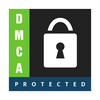RECORDED TRAINING COURSE
All non-financial professionals are challenged in today’s business environment to manage and ensure full and efficient utilization of limited resources to improve profits and productivity and achieve overall business success. This requires as a foundation the understanding & analysing of financial statements.
Financial transactions of a business are transformed through an accounting process to three key and required financial statements, they are:
- Balance Sheet which shows what the company owns minus what it owes and the resulting financial strength of the company
- Income Statement which indicates the comparison of revenue earned from providing goods and services less the costs or expenses used to provide the goods and services. This resulting comparison is called profit or surplus
- Cash Flow Statement which indicates the company’s sources and uses of funds
The ability to understand and analyze financial statements is a key and relevant to making sound business decisions. One essential key is the understanding of the different terms, tools and techniques used in the process of preparing these statements. Non-financial professionals find this a conflicting challenge and need a simple framework for understanding & analyzing these statements.
SESSION HIGHLIGHTS:
- The basic framework used in the preparation of financial statements
- The basic components of each statement and their use in business decisions and resource management
- Simple understanding of finance & accounting
- Simple understanding of:
- Cash vs. accrual basis accounting
- Accounting concepts and building blocks
- Core components of financial statements
- Analyzing financial statements as the language of business
- Simple financial statement terminology
- Simple signs of business financial healthy
- Financial statement red flags, cautions, and concerns
- Relevant ratios to improve profits and productivity with attendee exercises and engagement
- Essence of ratios, trends, comparisons, and cash in all business analysis and decisions
- Review of five essential categories of ratios to measure impact of:
- Profitability
- Efficiency
- Liquidity
- Solvency
- Cash
- Essential essence and utilization of:
- Working Capital
- Cash Management
- Free Cash Flow
Overall, in this webinar, you will learn in simple to understand and apply tools and techniques how to understand and analyze financial statements.
Why You Should Attend:
This webinar provides this simple platform and moves the many myths about accounting and financial statements to simple to understand and apply tools and techniques. Special emphasis is placed on understanding of the various terms used. These financial statements are considered the language of business and the means and methods by which the financial health of the company is conveyed to the owners, managers, and stakeholders.
This webinar will provide you a good sound working knowledge of financial statements and substantially enhance your ability to use them in the management of resources, improving the profits and productivity of your company. This webinar has been specifically prepared for the non-financial professional.
Who Should Attend:
- All Non-Financial Professionals interested and with the responsibility for resource management and budget responsibility.
- Financial Professionals who need a refresher in the basic tools and techniques of Understanding & Analyzing Financial Statements.
- Mid and Senior level managers
- Attorneys
- Purchasing personnel
- Mergers & acquisitions professionals
Note: You will get access to the Recording link and E-Transcript; in your account and at your registered email address.









